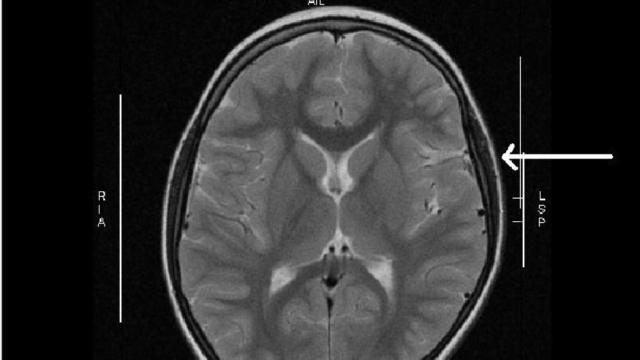Health care costs in the U.S. are rising most everywhere, and a new study out Wednesday suggests that people seeking care for neurological problems are no exception. The study found that people with private insurance are increasingly paying out-of-pocket for services like MRIs, and that these costs have risen over the course of 15 years.
The study, published Wednesday in Neurology, looked at data from more than 3 million patients enrolled in a single private health care plan. They looked at health care services related to neurology, such as evaluation or management visits with doctors, electromyograms (used to test the connection between our muscles and nerve cells), as well as MRIs and other brain imaging exams. The study period spanned from 2001 to 2016.
Across the board, these services took more of a financial toll on patients over time, they found. In 2001, about 30% of patients had to pay out-of-pocket for an electromyogram, but that rose to just over 50% in 2016. The same pattern was even worse for MRIs, with around 24% of patients needing to pay for them in 2001 but almost 70% doing the same in 2016. The percentage of people who paid out-of-pocket for doctors’ visits stayed more level but high during the years, with about 95% paying for them in 2016, up from 86.5% in 2001.
Patients are also paying more upfront for these exams and tests over time, though the actual costs fluctuate wildly. The median cost of a MRI test on its own in 2016 was $US103 ($136), for instance, but costs can go high as $US875 ($1,155) for those above the 95th percentile of patients in the new study. People enrolled in high deductible health plans are also often paying even more than others.
As the authors note, many Americans are strapped for cash as is. They highlight research suggesting that around 30% of people would find it hard to afford paying $US400 ($528) in emergency expenses in addition to their regular bills. Other research has shown that more than 50% of Americans are financially burdened or worried about high medical care costs.
“In this setting, neurologic evaluation might result in financial hardship for patients,” the authors wrote.
The researchers point out that these rising health care costs will only make it more likely that people choose to forego seeing a neurologist when needed or avoid getting tests that would diagnose urgent neurological problems — something that’s already happening for medical care in general. A survey published this May found about 22% of Americans had skipped out on medical care due to cost over the past year, while another 15% said someone in their family had done so.
Despite these trends, health care and insurance costs are expected to continue rising, though it’s not yet clear how much of an impact the covid-19 pandemic will have on these increases. The authors do offer some recommendations that would make navigating these costs a bit easier, such as making out-of-pocket costs transparent to patients and doctors upfront. But nothing short of drastic action on the part of lawmakers will significantly lower the burden people will have to shoulder.
“Costs have risen to the point where systematic changes are needed,” James C. Stevens, president of the American Academy of Neurology, said in a statement released Wednesday in response to the study’s findings. “These changes could include legislative action to place a cap on out-of-pocket costs. The American Academy of Neurology is advocating for such caps on out-of-pocket drug costs in Washington, D.C.”
Editor’s Note: Release dates within this article are based in the U.S., but will be updated with local Australian dates as soon as we know more.
